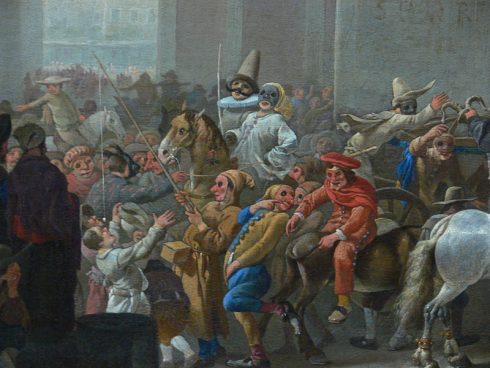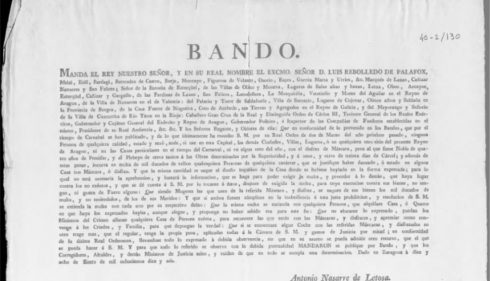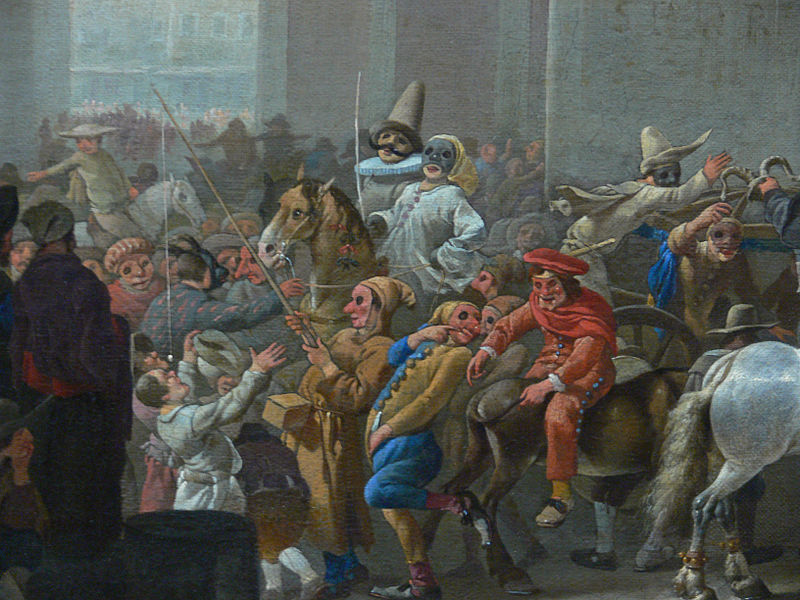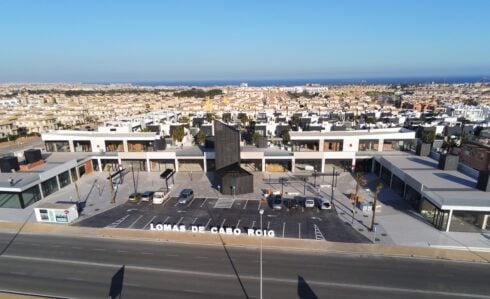WEARING masks has been part of carnival celebrations for centuries.
Two years into the COVID-19 pandemic, mask-wearing is inevitably widespread in Carnaval celebrations this week as Spain observed the traditional Fat Thursday (jueves lardero) and entrance into lententide.
But there was a dark period during the 16th century when mask-wearing was punishable by 100 lashes.
If the mask-wearer was a nobleman, he’d be kicked out of Spain for a period of six months.
The reasons for such harsh punishments lay with over-zealous leaders fearful of mockery or sticklers for Christian penitence.
Here’s an overview of Carnaval in 16th century Spain.

A Catholic celebration with pagan roots
Carnival is one of the most iconic annual celebrations in regions with a strong Catholic history and identity.
The festival is religiously linked to the beginning of lent, traditionally a period of fasting and penitence for Christians.
The carnival period in Spain usually lasts from Fat Thursday (some countries like France celebrate Fat Tuesday, or Mardi Gras) until Ash Wednesday, which marks the 1st day of lent.
Despite religious connotations the celebration is believed to have roots in paganism – especially the Roman festivals of Saturnalia or in those in honour of the god Bacchus, divinity of wine.
Carnival celebrations are wildly different depending on their country and culture but they tend to have a few common characteristics.
These include parades, costumes, dances, masks and partying.
The general lack of order and control has also led to carnival being a time to satirise authorities, something which in turn has led to knee-jerk reactions from kings and clergymen.

When mask-wearing gave you 100 lashes in Spain
A municipal act from Aragon (northern Spain) dating to 1569 sheds some light on the religious concerns surrounding carnival.
The document from the town of Daroca tried to defend the crusade against carnival, saying:
“The chief Justice has proposed how much God is offended in the rejoicings that are usually done on the days of Carnestolendas [carnival] throwing water, rockets, garbage, mud and other dirty tricks and dishonesty.”
The letter urged councilmen to pass ‘appropriate laws’ to control partying locals in preparation for lent.
Nearly 50 years earlier in the Aragonese city of Zaragoza, a 1521 law passed specifically regulating mask-wearing and disguises.
The law stated that no person could wear a mask or dress up except in 10 days around carnival time.
By 1523, the king Carlos I made it law that no one could go ‘masked’ throughout the entire Spanish kingdom – including during carnival.
Anyone caught out would be given 100 lashes – if they were a peasant – and be excommunicated from the realm for six months if a nobleman.

Franco didn’t much like carnival either
Over two centuries later Cadiz imposed restrictions on citizens to ban them from dressing up as clergyman, or from cross-dressing in public.
“Anyone found dressing up like that would be taken to jail,” writes Alberto Ramos Santana in his book El Carnaval Secuestrado (The Kidnapped Carnival).
Similar Scrooge-like behaviour re-appeared during and after the Spanish Civil War, when Franco’s rebel army issued an order banning celebrations of carnival.
The order read that the was in ‘moments that advise a withdrawal in the externalisation of internal joys, which not compatible with the life of sacrifices that we must lead’.
By 1940, Franco’s brother in law (Serrano Súñer) published in the Official State Bulletin (BOE) that:
“Suspended in previous years the so-called carnival celebrations, and not existing reasons that advise to rectify this decision, this Ministry has resolved to maintain it and to remember to all the dependent authorities the absolute prohibition of the celebration of such festivals.”
Though it took until Spain’s transition to democracy in the 1970s to lift bans on carnival, not all of Spain had paid much attention.
In 1978, leading Spanish newspaper El Pais pointed out that ‘in spite of government prohibition, they continued celebrating their carnival, where their masks were called disguises and the carnival called winter festivities’.
READ MORE:
- Vicar calls to ban ‘treacherous’ and ‘offensive’ virgins from big carnival on Spain’s Costa Blanca
- Singer India Martinez to perform at Spain’s Cadiz Carnival 2022.
- Fun on hold: Tenerife postpones its famous carnival until summer
- If you never knew Cadiz Carnival had a Song Contest this may shock you, writes Belinda Beckett
- Repentant Spanish priest apologises after dressing as Hugh Hefner and simulating ‘erotic acts’ during carnival
Click here to read more Must Read News from The Olive Press.








